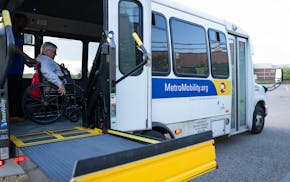The U.S. Supreme Court on Friday threw out President Joe Biden's program that would have wiped away billions of dollars in student loan debt for people across the country.
The president, a Democrat, vowed to continue the fight, but he cautioned it could take longer to provide relief via other avenues.
Here's what borrowers should know — and some questions that remain unanswered.
When do payments resume?
Interest on student loans begins accruing in September, and regular payments resume in October.
The U.S. Department of Education says borrowers should receive a statement at least 21 days before their payments are due. The notice should include both the due date and the required payment amount.
Why were student loans paused?
Shortly after the first COVID-19 cases were recorded in the United States in March 2020, then-President Donald Trump paused payments on federal student loans, citing the economic hardships caused by the pandemic. The plan also temporarily set interest rates at 0%.
The Biden administration extended the pause multiple times. It also unveiled a separate plan to forgive up to $20,000 in federal student loans for borrowers making less than $125,000 per year — the Supreme Court nixed that plan Friday.
And federal officials agreed to resume payments while negotiating a debt ceiling deal earlier this year.
Will my loans be forgiven?
It's still a little unclear.
The Supreme Court ruled that Biden overstepped when he tried to rely on the Higher Education Relief Opportunities for Students (HEROES) Act to forgive student loans. So borrowers won't get relief that way.
Hours after the ruling, the White House said it would try to create "an alternative path to debt relief for as many borrowers as possible," by relying on a different law called the Higher Education Act. It wasn't clear Friday what that debt relief plan would look like.
The White House said a virtual public hearing will be held July 18, and the U.S. Department of Education will "finalize the issues to be addressed" after that.
What if I can't afford to pay?
The Biden administration said Friday that it would attempt to provide a yearlong "on-ramp" to help people who are struggling with repayment.
The president encouraged people to make payments as scheduled, if they can. But the White House said borrowers with federal loans who miss payments during that time won't be considered delinquent, reported to credit bureaus, placed in default or referred to debt collection agencies. That grace period would run from Oct. 1, 2023, through Sept. 30, 2024, according to the White House.
Borrowers may also find relief in other loan forgiveness programs, including some for people working for government agencies or nonprofits.
The U.S. Department of Education has previously said some people may be able to lower their monthly payments by applying for an income-driven repayment plan, which factors in borrowers' salaries and the size of their families. It recommends that borrowers who aren't eligible for the program reach out to their loan servicers.
More detailed information on some programs is available at studentaid.gov/announcements-events/covid-19.
Staff writer Hunter Woodall contributed to this story.
The Star Tribune is looking for Minnesotans who are willing to talk about how student debt has affected their lives. If you're interested or would like to learn more, please include your contact information in the form below.
St. Paul 18-year-old killed in Inver Grove Heights crash

Riders say Metro Mobility is a lifeline, but sometimes it makes their lives miserable
Minnesota eyes 'sprint' paramedics to ease rural shortages, lagging emergency response

College graduations will be twice as sweet for class whose high school celebrations happened online

